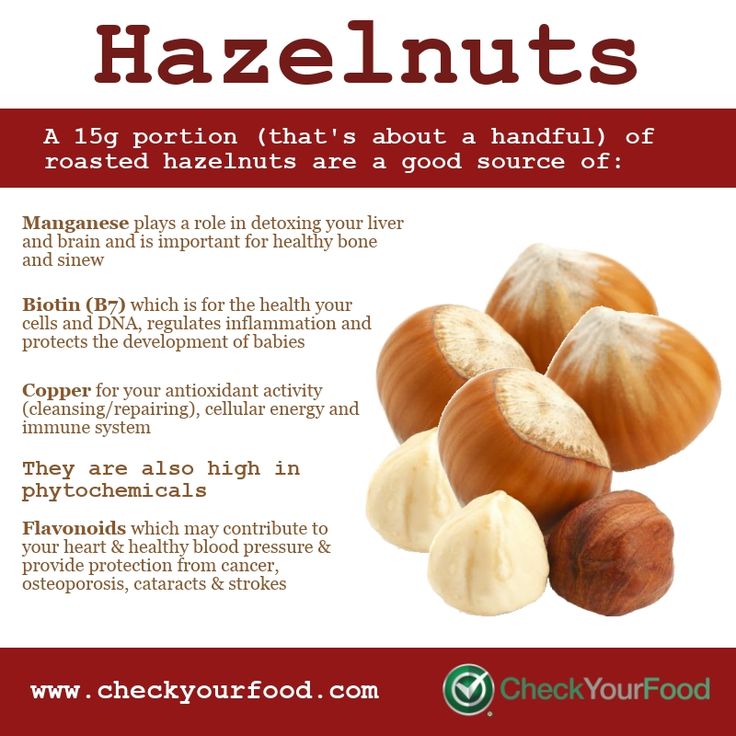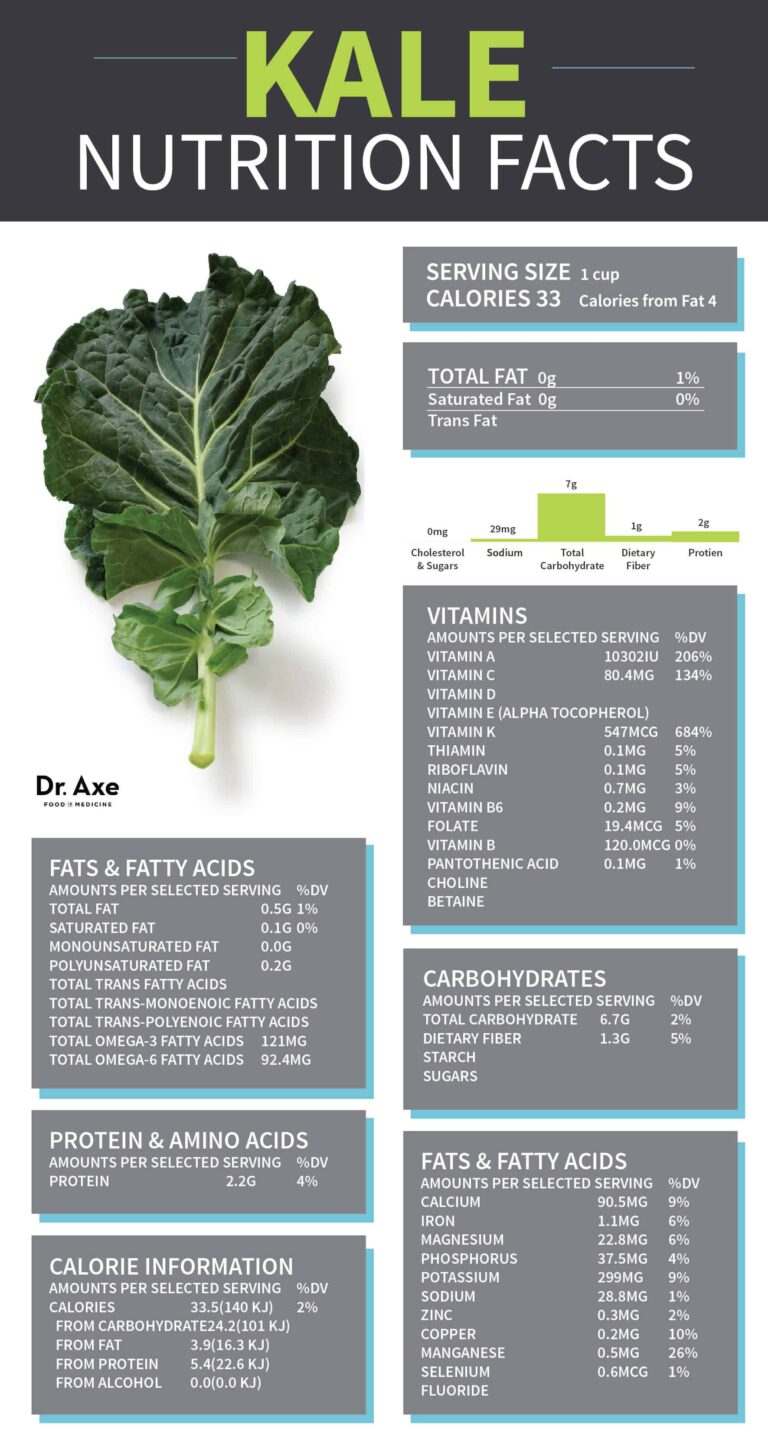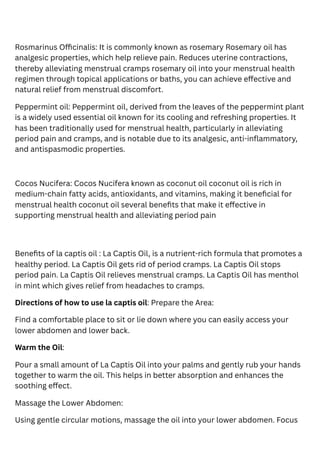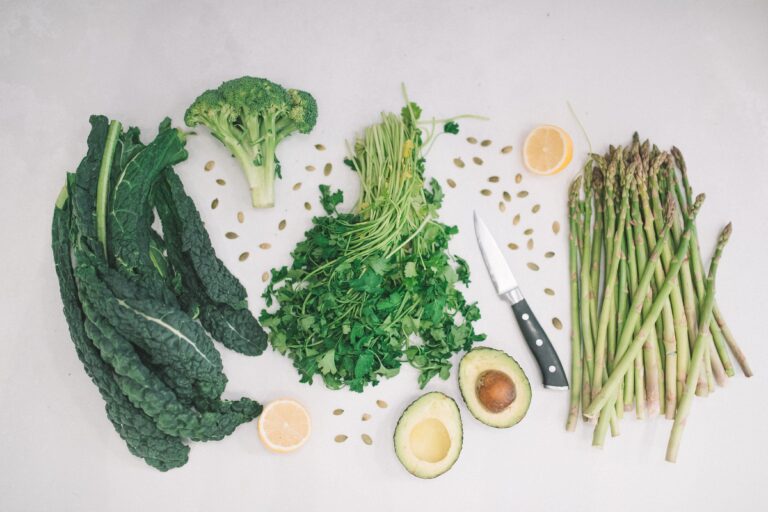The Emerald Blade of Wellness: A Complete Guide to Lemongrass Health Benefits You Need to Know
The Story Begins: An Unassuming Herb with Ancient Secrets
In the verdant embrace of tropical landscapes, where the air hums with the vibrancy of life, grows an unassuming herb, often overlooked yet brimming with extraordinary potential. It’s a plant of slender grace, its long, reedy stalks culminating in a bulbous base, exuding an aroma that is at once citrusy, earthy, and invigorating. This is Cymbopogon citratus, more commonly known as lemongrass – the emerald blade of wellness whose story spans millennia, cultures, and an ever-unfolding scientific narrative.
From the bustling street food stalls of Bangkok to the tranquil Ayurvedic clinics of Kerala, from the simmering pots of Vietnamese pho to the soothing infusions brewed for weary souls, lemongrass has woven itself into the fabric of human life. It’s a culinary delight, a fragrant beacon in aromatherapy, and, as modern science increasingly confirms, a powerhouse of medicinal properties. This isn’t just a list of benefits; this is the story of lemongrass, a journey from ancient folk remedy to a subject of rigorous scientific inquiry, revealing a comprehensive guide to its profound health benefits that you, the knowledgeable seeker of wellness, need to know.
The Historical Tapestry: A Journey Through Time and Tradition
The narrative of lemongrass begins deep in the annals of history, particularly in the sun-drenched lands of South and Southeast Asia. Its use is documented in ancient Ayurvedic texts in India, where it was revered not just for its flavor but for its potent medicinal qualities, especially in treating fevers, digestive ailments, and infectious conditions. It was a staple in traditional Chinese medicine, valued for its ability to dispel dampness and regulate qi, or life energy.
As trade routes expanded and cultures intertwined, lemongrass embarked on a remarkable journey. It found its way into Thai traditional medicine, becoming an indispensable ingredient in their vibrant cuisine and a remedy for colds, flu, and aches. In Indonesia, it was used to alleviate stomach pains and promote relaxation. African and South American cultures, too, adopted the herb, integrating it into their local pharmacopeias for its antiseptic and carminative properties.
For centuries, this botanical marvel was understood through empirical observation and passed down through generations. People intuitively knew that a cup of lemongrass tea could soothe an upset stomach, that its aroma could calm a restless mind, and that its presence in food could enhance not just flavor but overall well-being. It was a testament to nature’s pharmacy, a silent guardian in the daily lives of millions. Yet, the precise "how" and "why" remained largely a mystery, awaiting the advent of modern scientific tools to unravel its intricate chemical symphony.
The Chemical Symphony: Unveiling Lemongrass’s Potent Core
To truly appreciate the health benefits of lemongrass, we must delve into its molecular architecture, the complex array of compounds that orchestrate its therapeutic effects. The most prominent and celebrated component is citral, a collective term for two isomeric aldehydes: geranial (alpha-citral) and neral (beta-citral). These two compounds are responsible for the herb’s characteristic lemon scent and many of its biological activities. However, citral is merely the lead performer in a much larger ensemble.
Lemongrass is also rich in a diverse range of other bioactive constituents, each playing a crucial role in its overall efficacy:
- Flavonoids: These powerful plant pigments act as antioxidants, combating oxidative stress and inflammation. Examples include luteolin, isoorientin, and swertia japonica.
- Phenolic Compounds: Another class of potent antioxidants and anti-inflammatory agents, contributing to the herb’s protective effects.
- Terpenoids: A vast group of organic compounds with diverse biological activities, including anti-inflammatory, antimicrobial, and even anti-cancer properties. Myrcene, limonene, and geraniol are notable examples found in lemongrass.
- Essential Oils: Beyond citral, the essential oil of lemongrass contains other volatile compounds like citronellal, farnesol, and methyl heptenone, each contributing to its unique aroma and therapeutic profile.
- Vitamins and Minerals: While not in exceptionally high quantities, lemongrass also provides trace amounts of vitamins A and C, and minerals like potassium, calcium, magnesium, and iron, contributing to general nutritional support.
The magic of lemongrass, like many botanical remedies, lies not in a single isolated compound but in the synergistic interaction of this entire phytochemical orchestra. These compounds work in concert, amplifying each other’s effects, and providing a holistic therapeutic action that often surpasses the sum of their individual parts. This complex interplay is what empowers lemongrass to address a multifaceted array of health concerns, bridging the gap between ancient wisdom and modern understanding.
Deep Dive into Specific Health Benefits: The Chapters of Its Power
With a foundational understanding of its historical significance and chemical composition, we can now embark on a detailed exploration of the myriad health benefits that lemongrass offers, each chapter revealing a facet of its remarkable power.
A. Digestive Dynamo: Aiding the Gut and Beyond
One of the most historically recognized uses of lemongrass is its profound impact on digestive health. Traditionally, it was the go-to remedy for a wide array of gastrointestinal discomforts, and modern science largely supports these applications.
- Carminative Properties: Lemongrass is a potent carminative, meaning it helps to prevent the formation of gas in the gastrointestinal tract and aids in its expulsion. This makes it an excellent remedy for bloating, flatulence, and general abdominal distension.
- Antispasmodic Effects: The compounds in lemongrass, particularly citral, possess antispasmodic properties. They help relax the smooth muscles of the digestive tract, alleviating cramps, stomach aches, and intestinal spasms, which are common symptoms of irritable bowel syndrome (IBS) and other digestive disturbances.
- Antimicrobial Action: Studies have shown that lemongrass essential oil and extracts exhibit significant antimicrobial activity against various gut pathogens. This includes bacteria like Helicobacter pylori (implicated in ulcers and gastritis), Escherichia coli, and Salmonella, as well as certain fungi. While not a primary treatment for severe infections, its regular consumption may contribute to a healthier gut microbiome by inhibiting the growth of harmful microorganisms.
- Promoting Healthy Digestion: Beyond addressing discomfort, lemongrass can stimulate digestive enzymes and promote the efficient breakdown and absorption of nutrients. Its mild diuretic properties can also help cleanse the digestive system.
The story here is one of balance and relief, where lemongrass acts as a gentle yet effective ally in maintaining a harmonious and functional digestive system, offering comfort and promoting overall gut wellness.
B. The Anti-Inflammatory & Antioxidant Warrior
In today’s world, chronic inflammation and oxidative stress are recognized as fundamental drivers of numerous chronic diseases, from heart disease and diabetes to neurodegenerative conditions and cancer. Lemongrass emerges as a formidable warrior against these pervasive threats.
- Antioxidant Powerhouse: The rich array of flavonoids and phenolic compounds in lemongrass acts as powerful free radical scavengers. Free radicals are unstable molecules that damage cells and DNA, leading to oxidative stress. By neutralizing these free radicals, lemongrass helps protect cellular integrity and reduces the burden of oxidative damage on the body.
- Anti-Inflammatory Action: Beyond its antioxidant capabilities, lemongrass exhibits significant anti-inflammatory properties. Research suggests that its active compounds can inhibit the production of pro-inflammatory cytokines and enzymes, such as cyclooxygenase-2 (COX-2), which are key mediators of inflammation in the body. This makes it a natural complement in managing inflammatory conditions like arthritis, muscle soreness, and even systemic inflammation.
By mitigating both oxidative stress and inflammation, lemongrass contributes to a robust defense system, helping to prevent cellular damage and reduce the risk factors associated with a wide spectrum of chronic health issues. It’s a tale of cellular protection and systemic harmony.
C. Calming the Nerves: Stress, Anxiety, and Sleep
In an increasingly demanding world, the pursuit of tranquility and restful sleep is paramount. Lemongrass has long been cherished for its ability to soothe the nervous system, offering a gentle balm for stress and anxiety.
- Anxiolytic Effects: The calming aroma of lemongrass essential oil is widely used in aromatherapy to reduce stress and anxiety. Studies indicate that inhaling lemongrass oil can lower heart rate and perceived anxiety levels. While the exact mechanisms are still being explored, it’s believed to influence neurotransmitter activity in the brain, potentially affecting GABAergic pathways, which are involved in relaxation.
- Mild Sedative Properties: A warm cup of lemongrass tea before bed is a traditional remedy for insomnia and restlessness. Its mild sedative properties can help relax muscles and promote a sense of calm, facilitating easier onset of sleep and improving sleep quality without the heavy side effects of pharmaceutical sleep aids.
- Muscle Relaxation: The antispasmodic properties of lemongrass extend to skeletal muscles, helping to relieve tension headaches and general muscle stiffness often associated with stress.
This chapter of the lemongrass story is about finding peace and restoring balance to the mind and body, offering a natural pathway to calm in a chaotic world.
D. Pain Relief: A Natural Analgesic
For millennia, humans have sought natural remedies for pain. Lemongrass, with its anti-inflammatory and analgesic properties, has served this role effectively in various traditional medical systems.
- Reducing Inflammatory Pain: Given its potent anti-inflammatory action, lemongrass can be particularly effective in alleviating pain stemming from inflammation, such as that associated with arthritis, muscle strains, and headaches. By reducing the underlying inflammation, it directly addresses a key source of discomfort.
- Direct Analgesic Effects: Beyond inflammation, some research suggests that lemongrass compounds may have direct pain-relieving effects, potentially by modulating pain pathways in the nervous system. While the precise mechanisms require further elucidation, its traditional use for various aches and pains (headaches, joint pain, menstrual cramps) points to a broader analgesic capability.
- Topical Application: Diluted lemongrass essential oil can be applied topically to sore muscles or aching joints, providing localized relief through its anti-inflammatory and warming properties.
The story of lemongrass as a pain reliever is one of natural comfort, offering an alternative or complementary approach to managing various forms of physical discomfort.
E. Cardiovascular Guardian: Supporting Heart Health
The heart, the tireless engine of our body, benefits significantly from the protective embrace of lemongrass. Its compounds offer several mechanisms that contribute to cardiovascular well-being.
- Cholesterol Management: Some studies have indicated that regular consumption of lemongrass may help reduce levels of LDL (bad) cholesterol and triglycerides while potentially increasing HDL (good) cholesterol. This effect is attributed to its antioxidant and anti-inflammatory compounds, which can help prevent the oxidation of LDL cholesterol, a key step in the development of atherosclerosis.
- Blood Pressure Regulation: Lemongrass exhibits mild diuretic properties, which can aid in flushing out excess sodium and water from the body, thereby contributing to lower blood pressure. Furthermore, its ability to relax blood vessels (vasodilation) can also play a role in maintaining healthy blood pressure levels.
- Antioxidant Protection for Blood Vessels: By combating oxidative stress, lemongrass helps protect the delicate endothelial lining of blood vessels from damage, promoting their elasticity and overall health, which are crucial for preventing cardiovascular diseases.
While not a substitute for conventional cardiovascular medications, incorporating lemongrass into a heart-healthy diet can serve as a valuable complementary strategy, telling a story of proactive protection for the heart.
F. Immune Booster & Antimicrobial Agent
The immune system, our body’s primary defense against pathogens, finds a staunch ally in lemongrass. Its broad-spectrum antimicrobial properties, coupled with its potential to fortify immune responses, make it a powerful natural immune booster.
- Antibacterial, Antifungal, and Antiviral Properties: Lemongrass essential oil and extracts have demonstrated impressive antimicrobial activity against a wide range of bacteria (e.g., Staphylococcus aureus, Bacillus cereus), fungi (e.g., Candida albicans), and even some viruses (in in vitro studies). This makes it a natural agent for fighting off infections and supporting the body during periods of illness.
- Traditional Fever Reducer: In many traditional cultures, lemongrass tea is a popular remedy for colds, flu, and fevers. Its diaphoretic properties induce sweating, which can help lower body temperature during fever. Its decongestant properties can also help clear nasal passages and ease respiratory discomfort.
- Boosting White Blood Cell Activity: Some preliminary research suggests that certain compounds in lemongrass may stimulate the production and activity of white blood cells, the crucial components of our immune system responsible for fighting off invaders.
This chapter highlights lemongrass as a formidable shield, helping the body defend itself against common ailments and bolstering its natural immune capabilities.
G. Detoxification & Diuretic Effects
The body is constantly engaged in detoxification, and lemongrass can lend a helping hand, primarily through its diuretic properties.
- Promoting Urination: Lemongrass is a natural diuretic, meaning it increases urine output. This facilitates the elimination of toxins, waste products, and excess fluids from the body through the kidneys. This gentle flushing action can be beneficial for kidney health and in conditions involving fluid retention.
- Liver Support (Indirect): While not a primary liver detoxifier in the same vein as milk thistle, the antioxidant properties of lemongrass can indirectly support liver function by reducing oxidative stress on liver cells. A healthy liver is crucial for the body’s natural detoxification processes.
- Clearing Uric Acid: By promoting urination, lemongrass can also aid in the excretion of uric acid, which can be beneficial for individuals prone to conditions like gout.
The story of detoxification with lemongrass is one of gentle cleansing, assisting the body’s innate mechanisms to maintain purity and balance.
H. Cancer Research: A Glimmer of Hope (Proceed with Caution)
Perhaps one of the most intriguing and actively researched areas of lemongrass benefits lies in its potential anti-cancer properties. This chapter, however, comes with a crucial caveat: these findings are primarily from in vitro (test tube) and animal studies, and much more research, especially human clinical trials, is needed before any definitive conclusions can be drawn.
- Inducing Apoptosis: Studies have shown that citral, the main compound in lemongrass, can induce apoptosis (programmed cell death) in various cancer cell lines, including breast, colon, and prostate cancer cells, while leaving healthy cells unharmed.
- Inhibiting Cell Proliferation: Lemongrass extracts have been observed to inhibit the uncontrolled proliferation of cancer cells, a hallmark of cancer development.
- Anti-Angiogenic Potential: Some research suggests lemongrass may interfere with angiogenesis, the process by which tumors develop new blood vessels to sustain their growth.
While the preliminary findings are promising and open exciting avenues for future drug development, it is imperative to understand that lemongrass is not a cure for cancer, and it should never replace conventional cancer treatments. Its role, if proven in humans, would likely be as a complementary agent. This is a story still being written, filled with hope but tempered by scientific prudence.
I. Skin & Hair Health (Topical Applications)
The benefits of lemongrass extend beyond internal consumption, offering a natural boost for skin and hair health when applied topically.
- Antifungal for Skin Conditions: The antifungal properties of lemongrass essential oil (diluted) make it effective against certain skin conditions, such as athlete’s foot and ringworm.
- Astringent Properties: Lemongrass acts as a natural astringent, helping to tone and tighten the skin, reduce pore size, and control excess oil production, making it beneficial for oily and acne-prone skin.
- Insect Repellent: While citronella (a closely related species) is more famous, lemongrass also possesses insect-repelling properties, making it a natural choice for deterring mosquitoes and other pests.
- Hair Strength and Shine: When added to hair rinses or diluted in carrier oils for scalp massage, lemongrass can help strengthen hair follicles, reduce hair loss, and impart a healthy shine. Its antimicrobial properties can also help combat scalp issues like dandruff.
This chapter reveals lemongrass as a versatile beauty enhancer, leveraging its natural properties for external well-being.
Practical Applications: Bringing the Story Home
The story of lemongrass health benefits culminates in its practical application in our daily lives. Incorporating this versatile herb is surprisingly easy and offers a delightful sensory experience.
-
Culinary Uses:
- Teas and Infusions: The simplest and perhaps most common way to enjoy lemongrass is as a tea. Use fresh stalks (bruised and chopped) or dried lemongrass. Steep in hot water for 5-10 minutes for a refreshing and therapeutic beverage.
- Soups and Curries: Lemongrass is a cornerstone of Southeast Asian cuisine. It imparts a distinctive aroma to dishes like Thai Tom Yum soup, Vietnamese pho, and various curries.
- Stir-fries and Marinades: Add finely minced lemongrass to stir-fries or use it as a flavorful base for marinades for poultry, fish, or tofu.
- Desserts and Drinks: Its citrusy notes make it an interesting addition to desserts (e.g., lemongrass panna cotta) and refreshing beverages (e.g., lemongrass iced tea, infused water).
- Preparation Tip: To release its aromatic oils, always bruise the tougher lower part of the stalk with the back of a knife or a rolling pin before adding it to dishes or teas.
-
Aromatherapy:
- Diffusers: Diffusing lemongrass essential oil can uplift mood, reduce stress and anxiety, and purify the air.
- Inhalations: For respiratory issues, add a few drops of essential oil to a bowl of hot water, cover your head with a towel, and inhale the steam.
- Topical Application: Always dilute lemongrass essential oil in a carrier oil (like jojoba, almond, or coconut oil) before applying it to the skin for pain relief, muscle soreness, or as an insect repellent. Perform a patch test first.
-
Other Uses:
- Insect Repellent: Plant lemongrass in your garden or use diluted essential oil sprays to naturally deter mosquitoes.
- Natural Cleaning: The antimicrobial properties of lemongrass make its essential oil a great addition to DIY natural cleaning solutions.
Important Considerations & Precautions: The Unspoken Chapters
While lemongrass is generally considered safe for most people when consumed in culinary amounts, its concentrated forms, particularly essential oil, require mindful usage. As with any powerful botanical, it’s crucial to be aware of potential interactions and precautions.
- Dosage: There is no standardized therapeutic dosage for lemongrass. Culinary use is typically safe. For medicinal purposes, start with small amounts and observe your body’s reaction.
- Pregnancy and Breastfeeding: While culinary amounts are generally fine, pregnant and breastfeeding women should exercise caution with concentrated lemongrass products and essential oils. Always consult a healthcare professional.
- Allergies and Skin Sensitivity: Some individuals may experience allergic reactions, such as skin irritation or contact dermatitis, especially with topical application of essential oil. Always perform a patch test.
- Drug Interactions: Lemongrass may potentially interact with certain medications:
- Blood Thinners: Due to its potential anti-platelet effects, it might enhance the effects of anticoagulant medications (e.g., warfarin).
- Blood Pressure Medications: Its diuretic and blood pressure-lowering effects could theoretically lead to hypotension when combined with antihypertensive drugs.
- Chemotherapy: Given its preliminary anti-cancer research, it’s crucial for cancer patients to consult their oncologist before using lemongrass therapeutically, as it could potentially interfere with treatments.
- Quality of Essential Oil: Always choose high-quality, pure, therapeutic-grade essential oils from reputable sources. Ensure proper dilution before topical application.
- Consult Healthcare Professionals: Lemongrass should be considered a complementary approach to health, not a replacement for professional medical advice, diagnosis, or treatment, especially for chronic conditions or if you are on medication.
The Future of Lemongrass Research: The Ongoing Story
The story of lemongrass is far from over. Scientific inquiry continues to peel back its layers, revealing new insights and potential applications. Researchers are actively focusing on:
- Human Clinical Trials: Moving beyond in vitro and animal studies, the emphasis is on conducting robust human clinical trials to validate its efficacy and safety for various health conditions.
- Mechanism Elucidation: Further understanding the precise molecular mechanisms by which its compounds exert their therapeutic effects.
- Novel Drug Development: Exploring the potential of isolating and synthesizing specific compounds from lemongrass for pharmaceutical applications.
- Sustainable Cultivation: Research into optimizing cultivation practices to ensure sustainable sourcing and maximize the yield of active compounds.
As our understanding deepens, the emerald blade of wellness promises to continue revealing its secrets, further cementing its place in the pantheon of nature’s most powerful medicinal plants.
Conclusion: The Enduring Legacy of the Emerald Blade
From its ancient origins as a revered folk remedy to its modern recognition as a subject of intense scientific scrutiny, lemongrass has journeyed through time, leaving an indelible mark on human health and well-being. Its story is one of resilience, versatility, and profound efficacy.
We have explored its rich historical tapestry, delved into the intricate chemical symphony that orchestrates its power, and meticulously detailed its myriad health benefits: from soothing digestive woes and calming anxious minds to bolstering immunity and guarding cardiovascular health. We’ve seen its potential as an anti-inflammatory and antioxidant warrior, a natural pain reliever, and even a glimmer of hope in the fight against cancer. Its practical applications are as diverse as its benefits, seamlessly integrating into our kitchens, our wellness routines, and our homes.
Yet, like all powerful narratives, it carries with it the wisdom of caution and respect. While lemongrass is a gift from nature, it must be approached with knowledge and discretion, particularly in its concentrated forms.
The complete guide to lemongrass health benefits you need to know is a testament to the enduring power of nature’s pharmacy. It invites us to reconnect with ancient wisdom, embrace modern science, and integrate this humble, aromatic herb into our lives, fostering a journey towards holistic health and vitality. The emerald blade of wellness stands tall, a vibrant symbol of nature’s enduring promise to nourish, heal, and inspire.







